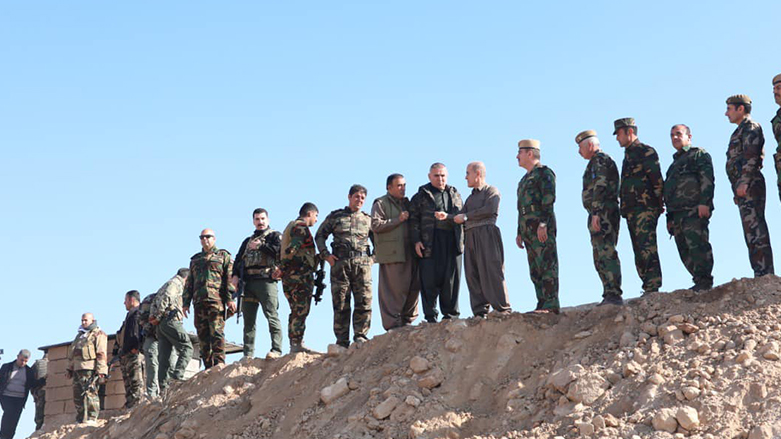Peshmerga Minister: Joint operations with Iraqi forces 'have limited the movement of ISIS'

ERBIL (Kurdistan 24) – The Kurdistan Region’s Minister of Peshmerga Affairs said on Tuesday that increased collaboration in recent months by Kurdish and Iraqi forces has been effective in reducing ISIS activity in territories disputed by Baghdad and Erbil.
The extremist group has long exploited the federal and regional forces' lack of cooperation in Iraq's disputed territories.
"Joint operations of the Peshmerga forces and the Iraqi army have limited the movement of ISIS," Minister Shoresh Ismail said in a statement, noting that it was still crucial "to bring the communication and coordination with the Iraqi army to higher levels."
"Following a decision of the Supreme Defense Council of the Ministry of Peshmerga," he continued, his ministry has begun to "reorganize and reposition the Peshmerga forces to build modern military positions."
The comments came after Ismail made a field visit to forces that make up what is known as the Peshmerga's First Axis in Garmasir and the Second Axis of Qara-Tapa and Hamrin, located within the Garmiyan administrative district.
The statement indicated that Minister Ismail, accompanied by the Deputy Chiefs of Staff for Operations and Administration, "closely inspected Peshmerga positions in the two axes and had a comprehensive and decisive dialogue with all brigade leaders and senior officers," especially on the borders and meeting points of the various positions.
According to the statement, Ismail stressed the ministry's "interest in strengthening defensive positions of the Peshmerga and destroying the terrorists thoroughly in the area," vowing that "the recent brutal terrorist acts of ISIS will not distort stability, security, and safety in the region.”
Three Kurdish Peshmerga forces were killed repelling an Islamic State attack in early December on a disputed town in the Iraqi province of Diyala, while separate ISIS attacks in the same time period left at least five people dead and dozens more injured.
Officials in the Kurdistan Region have often called on the relevant security and political authorities, both in Baghdad and in the autonomous Kurdistan Region, to address the root causes that led to the 2014 rise of ISIS, warning that the group’s ideology remains a grave risk.
“Peshmerga forces will continue to pursue them and monitor their movement and will respond to any terrorist activity of any kind," concluded the official.